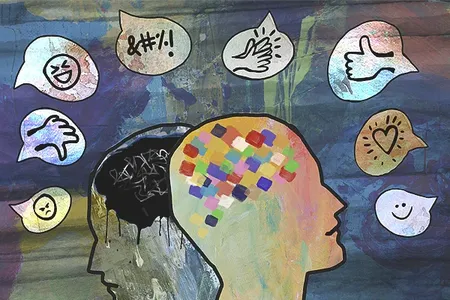It's all in the genes
By MAS Team
What if you were told that the friends you have, who you choose as a partner, whether you lean towards introversion or extroversion and even what you choose to eat was partly predetermined before you were born?
Women sniffing out Mr Right through body odour and our predisposition to overeating are just a couple of the topics leading UK-based neuroscientist Dr Hannah Critchlow covers in her book The Science of Fate: Why Your Future Is More Predictable Than You Think.
Making her New Zealand debut to discuss her book at the NZ Festival of Arts in March, we picked up the phone to Hannah to talk about her findings and the nuts and bolts of how we make simple everyday choices.
While we like to believe we are a highly evolved species who left behind our caveman origins long ago, our brains still respond to some basic, primal instincts.
In her book, Hannah references a study where women were presented with shirts worn by men for multiple days where their natural smell remained – they weren't allowed to wash their shirts, use deodorant, or eat or drink anything 'offensive'.
Most women preferred the body odour of men whose immune system were very different to their own. The theory goes they are instinctively predisposed towards potential partners with different genetics as this will produce stronger immune systems for their future offspring.
"Women are literally sniffing out Mr Right without realising it," says Hannah.

Our primal instincts are also at work when it comes to eating as though we won't see another square meal in days. Hannah explains that, even though we don't need to eat like we are in survival mode, it's a hardwired natural biological response.
"Mammals basically evolved, over roughly 250 million years, to carry on eating no matter what. Anything that enhanced our individual ability to seek out food, consume it quickly, carry on eating even when we were full, store fat more efficiently or hold on to our fat stores for as long as possible gave us an advantage."
The problem is that, while most of us in the developed world have plenty of food on hand at all times, our instincts are telling us to eat as if we won't get another meal for days, she says.
"Our appetite is largely determined at birth, written into our genes and pre-wired into our brain circuitry. It is shaped by biological traits that have evolved over millennia to drive us to find certain foods delicious," she says.
On top of this, there are up to 150 different genes that affect your weight. These genes determine how hungry you feel, how many calories you need to stimulate your 'reward pathways' and how many nutirents you require. "This is why some people always find it harder to cut ack or reduce the amount of certain foods they crave."
Humans prefer to do things the easy way rather than the long, hard way and if we find a shortcut that makes a task easier, we tend to follow it. Our brains are the same when it comes to beliefs that are ingrained in them.
"Once the brain has constructed a belief about something, however partial or flawed, it prefers not to have to revise it. The brain becomes invested in these beliefs, reinforcing them by looking for supporting evidence while ignoring contradictory information," Hannah says. This is why it can feel like talking to a wall when discussing topics like religion or politics with people who have opposing beliefs. Our brains are trying to find ways to justify our beliefs and to ignore counter-arguments.
"The brain takes a lot of shortcuts and uses your past experiences in order to create those shortcuts – this is what gives us our biases. If these have been ingrained with different experiences across the course of your life, you've got to do some extensive demolishing and reconstruction work in your brain if you want to think about things afresh," she says.


Learn about the benefits of real social connections and take the steps to digitally disconnect to help you reconnect.

Dr Brad Stanfield shares tips on how to live healthy for longer, including getting back to basics and the things you really shouldn’t be doing.

Young people spend significant amounts of time online, but how does the endless scrolling of social media impact them during those turbulent teenage years?